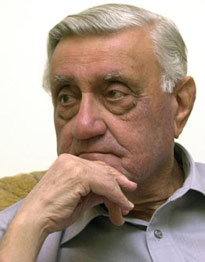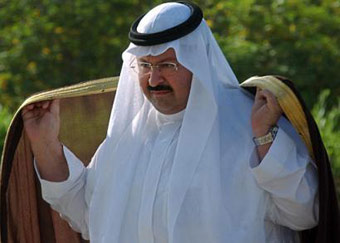|
Al-Yawer named Iraq's new president
(Agencies)
Updated: 2004-06-01 15:51
Former Foreign Minister Adnan Pachachi was appointed as Iraq's new president Tuesday but turned down the post, an aide said. Governing Council President Ghazi Mashal Ajil al-Yawer was then named to the top post, a council member said.

Iraqi governing council member Adnan Pachachi seen in this file photo in Baghdad, Iraq, Wednesday, May 26, 2004. [AP] |
Nasser Kamel al-Chaderchi said al-Yawer accepted the post in a move to break the deadlock over selection of a new government to take power June 30, council member Nasser Kamel al-Chaderchi said.
The Americans had favored Pachachi, 81, while most of the Governing Council backed al-Yawer. An aide to Pachachi, speaking on condition of anonymity, said the elderly figure turned down the job, and the account was confirmed by al-Chaderchi.
A formal announcement was expected within hours.
The confusing scenario unfolded after council members angrily accused the American governor of Iraq, L. Paul Bremer, of trying to strongarm the choice of Pachachi for the largely ceremonial post.
Earlier Tuesday, council members said they expected a third name to be put forward. Some sources close to the deliberations, speaking on condition of anonymity, suggested the choice could be Saad al-Janabi, who was close to Saddam Hussein until he fled to Kuwait and the United States in the 1990s.

Iraqi Governing Council chief Ghazi Mashal Ajil al-Yawer walks inside the Green Zone in Baghdad, Iraq, in this Tuesday, May 18, 2004 file photo. [AP] |
On Friday, the most powerful post, the prime ministership, went to Iyad Allawi, a U.S.-backed Shiite Muslim with military and CIA connections. The presidency was to go to a Sunni Muslim Arab. Both Pachachi and al-Yawer are Sunnis.
U.N. envoy Lakhdar Brahimi had hoped to complete the selection of the 26-member Cabinet by Monday. However, a Governing Council session that was to have chosen a president was postponed until Tuesday, with sharp differences remaining between the council and the coalition over the largely ceremonial head of state job.
|